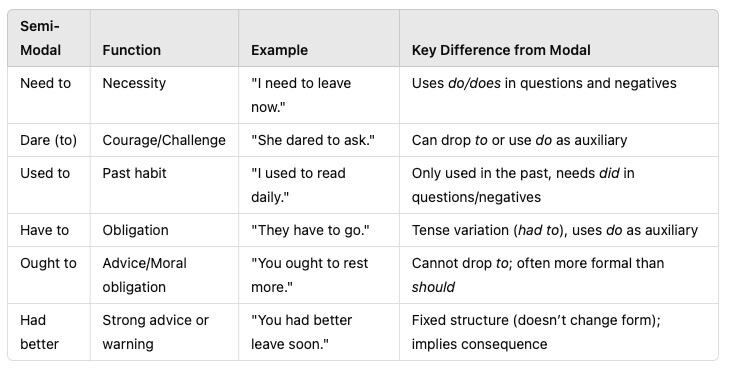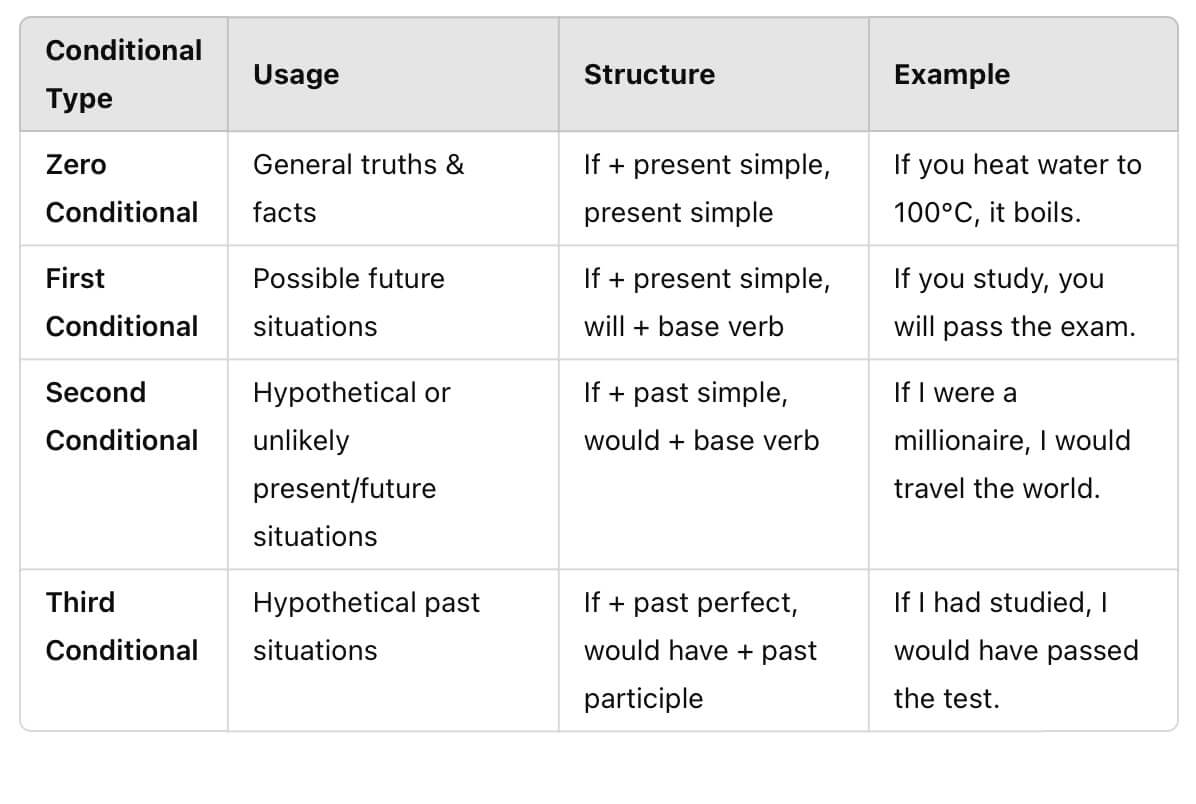- Home
- Types of Verbs
- Finite Verbs
Finite Verbs
Finite verbs are those verbs in a sentence that take a subject and have a tense. They are not a category of verb. Instead they refer to the form that the verb is taking.
So all verbs can be finite, it just depends what function they have in the sentence. Take for example the verb 'to go'. In the first case it is finite, but in the second case it is non-finite:
'Go' as a finite verb:
I go to Spain next summer
'Go' as a non-finite verb:
I want to go to Spain next summer
The first 'go' has a subject (I) and can express a person and tense (e.g. goes, went) but the second one has neither of these. It has no subject (it is instead just saying more about the verb 'want') and you cannot say 'I wanted to went...', so it cannot express tense.
We will learn more about finite verbs and their differences to non-finite verbs below.
Examples of Finite Verbs
To understand them better, here are some examples of finite verbs in sentences. Note they all have a subject (underlined) and could be used in the past, present or future tense:
- I take ages to do my homework
- They drove all the way to France
- Susan decided not to go out
- The house is built of wood
If we look at some other tenses which are made up of more verbs, even though on their own they would not be finite, in this case the whole verb phrase is finite (though in some grammar courses only the first verb is classed as finite):
- He is hoping for a pay rise (present continuous)
- They have been trying to find a solution (present perfect continuous tense)
There can of course be more than one finite verb in a sentence, as long as it is still connected to the subject, or a new subject, and it can express a tense:
- Ian likes to eat vegan food, but his sister insists on eating meat
- Although many people enjoy their work, I think that they still prefer to retire early if possible
Although a clause with a finite verb must have a subject, it would still be a finite verb if the subject were omitted for some reason, such as when it is implied.
For example in this case the subject is the same for both verbs even though it is appearing in front of only the first one:
- Rachael cooked the food and (she) ate it straight away
Or in commands which often have no subject stated:
- Come over here!
- Please pretend that you like the present
And also in utterances such as these:
- (I) don't care
- (It) won't matter
What is the difference between finite and non-finite verbs?
In contrast to finite verbs, non-finite verbs do not have a subject nor do they express a tense.
So that means that while finite verbs can act as the root of a full sentence or an independent clause, non-finite verbs cannot.
For instance, look at this sentence:
- The boy walked (finite) to the shop to buy (non-finite) some sweets
'Walked' is finite because it agrees with the subject (boy) and expresses a tense (past simple). However, the verb 'buy' does not agree with the subject or express a tense.
'buy' is in fact an infinitive. Other non-finite types of verbs are participles and gerunds.
Infinitives
- He wanted to go to university
- To travel around South America is my dream
- I must have a break
Present and Past Participles
These are commonly used for making adjectives:
- He is an interesting person (adjective)
- She is very excited (adjective)
Gerunds
When a verb functions as a noun it is a gerund. Again in all these cases you'll see it is not taking a subject (it is the subject in example one) or taking a tense:
- Skiiing is my favourite sport
- I like playing the piano
- I will pass the exam by studying hard
Are modal verbs finite or non-finite?
One area of confusion for students of English is whether modal verbs (e.g. will, could, may, might, should, must etc) are finite or non-finite.
It would make sense that they are non-finite verbs because they do not conjugate for tense or have a third person singular (i.e. taking an 's' after he, she, or it).
In fact modal verbs are an exception to the rules above. They are finite even though most do not express tense. Some though can, for instance we use 'could' for the past of 'can'.
So in these cases, the modal verb is part of the finite verb phase in the sentence:
- I should have left earlier to get the train
- You must take more care with your health
- I would not go there
- Shall we go to Spain this year on holiday?
So modal verbs are given the status of finite verbs even though they do not express tense or person like other main verbs.
There is a good discussion here on whether modal verbs are finite or non-finite.
Why study finite verbs?
As all verbs can be finite or non-finite it may seem odd to study them and so they are often not learned by students of English.
It can be useful to refer to them though because it can help students to understand that only one verb in a clause (not sentence as a sentence can have several clauses) will express a tense as sometimes students will attempt to add a tense to verbs that have no subject.
Now test yourself in this Finite Non-finite Verb Quiz >>
New! Comments
Any questions or comments about the grammar discussed on this page?
Post your comment here.









